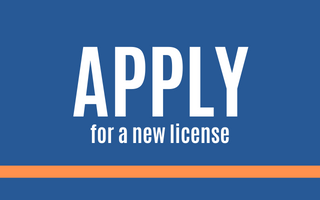
To be eligible for the Washington real property licensing exam, you will need to bring two forms ID. Each form should include your name, signature, current photograph, and date. Also, the exam's results are only valid for one year. This means that you will have to apply for your broker’s license before they expire. You will be given instructions to retake the exam if you fail. After passing the exam, you will be able to submit your official application.
Pre-licensing education
Washington requires that every aspiring real-estate agent completes at least 90 hours pre-licensing training before taking the exam. This 90-hour course includes courses in real estate contracts, principles, finance, and many other topics. Each module covers a different topic and the courses are delivered online. The study guides and optional tests will help students prepare for the real-estate exam.
Washington State Department of Licensing and Regulation requires that all applicants pass a background check before they can take the real estate exam. The state licensing testing agency must be registered before the candidates can take the exam. Candidates must also show proof of their course completion. They must pass the broker's exam, and answer legal background questions. Additionally, applicants must submit fingerprints for background checks every six-years. This information will also apply to applicants who completed their pre-licensing education outside of the United States.

Exam content
The WA licensing exam in real estate includes two parts. One is the national section and one is the state-specific. Each portion has interspersed questions. The experimental questions, which range from five to ten in number, will not be scored. Each portion has multiple-choice questions. The test taker has 3.5 hours for each part. You must score 70 to pass. The test content is extensive and covers all aspects the state's real-estate laws, contracts, procedures.
A pre-licensing course covers many of the same topics as the exam. Understanding the basics of realty math and the formulas that can be used to solve common realty calculations is essential. To improve your score, practice tests are important as the subject matter on the test is not always changing. Practice tests can be helpful to help you learn the format and identify your weak points. You should also memorize a few facts and math formulas that you've learned in your pre-licensing course.
Cost
The cost of wa real estate licensing varies from state to state, and varies with the type of business you run. A salesperson license is more affordable than a broker licence, since the latter requires additional licensing fees and schooling. Although licensing real estate can be expensive, starting from scratch can save you money. You can create a business plan and identify your target clients to reduce the cost. There are also numerous marketing resources available, such as print ads, digital ads, and social media campaigns.
The cost of prelicensing coursework varies depending on the place you choose. It can cost from $260 up to $500. After you complete the required course, your state licensing exam must be passed. Additional fees of $50-60 are required for MLS membership. The cost of MLS membership varies from region to region. It is best to consult your local fees to see the exact cost. Additionally, you'll likely need to pay a small amount to become an associate member of the National Association of Realtors.

Online options
Online schools can be a great option for Washington real estate license requirements. Unlike classroom-based schools, online schools allow you to set your own pace and get the information you need, so you can complete your studies in as little time as possible. Additionally, instructors will provide tutor support and exam prep assistance. Additionally, you can upgrade your course by purchasing Exam Preparation Plus, which includes a real estate dictionary, live exam cramer series, and a Q&A session with instructors.
Kaplan offers five WA-pre-licensing programs. You can choose between the Premium and Value packages depending upon your needs. These packages contain three online courses, each requiring less than nine credit hours. Both packages allow for flexibility in how you work and can be resumed from where you left off. Kaplan's courses were developed by experienced real estate professionals, who cover relevant and current topics.
FAQ
Do I need flood insurance?
Flood Insurance protects you from flooding damage. Flood insurance protects your possessions and your mortgage payments. Learn more information about flood insurance.
Is it possible fast to sell your house?
If you have plans to move quickly, it might be possible for your house to be sold quickly. You should be aware of some things before you make this move. First, find a buyer for your house and then negotiate a contract. The second step is to prepare your house for selling. Third, your property must be advertised. You should also be open to accepting offers.
Should I rent or purchase a condo?
Renting may be a better option if you only plan to stay in your condo a few months. Renting will allow you to avoid the monthly maintenance fees and other charges. On the other hand, buying a condo gives you ownership rights to the unit. You are free to make use of the space as you wish.
How can I get rid Termites & Other Pests?
Termites and other pests will eat away at your home over time. They can cause severe damage to wooden structures, such as decks and furniture. You can prevent this by hiring a professional pest control company that will inspect your home on a regular basis.
How much will it cost to replace windows
The cost of replacing windows is between $1,500 and $3,000 per window. The total cost of replacing all of your windows will depend on the exact size, style, and brand of windows you choose.
What are the drawbacks of a fixed rate mortgage?
Fixed-rate mortgages tend to have higher initial costs than adjustable rate mortgages. A steep loss could also occur if you sell your home before the term ends due to the difference in the sale price and outstanding balance.
How much money will I get for my home?
This can vary greatly depending on many factors like the condition of your house and how long it's been on the market. Zillow.com says that the average selling cost for a US house is $203,000 This
Statistics
- The FHA sets its desirable debt-to-income ratio at 43%. (fortunebuilders.com)
- Some experts hypothesize that rates will hit five percent by the second half of 2018, but there has been no official confirmation one way or the other. (fortunebuilders.com)
- This means that all of your housing-related expenses each month do not exceed 43% of your monthly income. (fortunebuilders.com)
- It's possible to get approved for an FHA loan with a credit score as low as 580 and a down payment of 3.5% or a credit score as low as 500 and a 10% down payment.5 Specialty mortgage loans are loans that don't fit into the conventional or FHA loan categories. (investopedia.com)
- This seems to be a more popular trend as the U.S. Census Bureau reports the homeownership rate was around 65% last year. (fortunebuilders.com)
External Links
How To
How to Manage a Rental Property
Although renting your home is a great way of making extra money, there are many things you should consider before you make a decision. This article will help you decide whether you want to rent your house and provide tips for managing a rental property.
Here are the basics to help you start thinking about renting out a home.
-
What are the first things I should consider? You need to assess your finances before renting out your home. You may not be financially able to rent out your house to someone else if you have credit card debts or mortgage payments. Your budget should be reviewed - you may not have enough money to cover your monthly expenses like rent, utilities, insurance, and so on. It might not be worth the effort.
-
How much will it cost to rent my house? There are many factors that influence the price you might charge for renting out your home. These include things like location, size, features, condition, and even the season. It's important to remember that prices vary depending on where you live, so don't expect to get the same rate everywhere. Rightmove shows that the median market price for renting one-bedroom flats in London is approximately PS1,400 per months. If you were to rent your entire house, this would mean that you would earn approximately PS2,800 per year. This is a good amount, but you might make significantly less if you let only a portion of your home.
-
Is it worth it? Although there are always risks involved in doing something new, if you can make extra money, why not? Be sure to fully understand what you are signing before you sign anything. Not only will you be spending more time away than your family, but you will also have to maintain the property, pay for repairs and keep it clean. These are important issues to consider before you sign up.
-
Is there any benefit? It's clear that renting out your home is expensive. But, you want to look at the potential benefits. There are plenty of reasons to rent out your home: you could use the money to pay off debt, invest in a holiday, save for a rainy day, or simply enjoy having a break from your everyday life. It's more fun than working every day, regardless of what you choose. You could make renting a part-time job if you plan ahead.
-
How can I find tenants? Once you decide that you want to rent out your property, it is important to properly market it. Start by listing online using websites like Zoopla and Rightmove. You will need to interview potential tenants once they contact you. This will enable you to evaluate their suitability and verify that they are financially stable enough for you to rent your home.
-
What are the best ways to ensure that I am protected? If you don't want to leave your home empty, make sure that you have insurance against fire, theft and damage. You'll need to insure your home, which you can do either through your landlord or directly with an insurer. Your landlord will likely require you to add them on as additional insured. This is to ensure that your property is covered for any damages you cause. This doesn't apply to if you live abroad or if the landlord isn’t registered with UK insurances. In such cases, you will need to register for an international insurance company.
-
It's easy to feel that you don't have the time or money to look for tenants. This is especially true if you work from home. But it's crucial that you put your best foot forward when advertising your property. Post ads online and create a professional-looking site. A complete application form will be required and references must be provided. While some prefer to do all the work themselves, others hire professionals who can handle most of it. It doesn't matter what you do, you will need to be ready for questions during interviews.
-
What do I do when I find my tenant. If you have a contract in place, you must inform your tenant of any changes. If you don't have a lease, you can negotiate length of stay, deposit, or other details. It's important to remember that while you may get paid once the tenancy is complete, you still need to pay for things like utilities, so don't forget to factor this into your budget.
-
How do you collect the rent? When the time comes for you to collect the rent you need to make sure that your tenant has been paying their rent. If not, you'll need to remind them of their obligations. Before you send them a final invoice, you can deduct any outstanding rent payments. If you're struggling to get hold of your tenant, you can always call the police. They will not normally expel someone unless there has been a breach of contract. However, they can issue warrants if necessary.
-
How can I avoid potential problems? You can rent your home out for a good income, but you need to ensure that you are safe. Consider installing security cameras and smoke alarms. Check with your neighbors to make sure that you are allowed to leave your property open at night. Also ensure that you have sufficient insurance. You should not allow strangers to enter your home, even if they claim they are moving in next door.